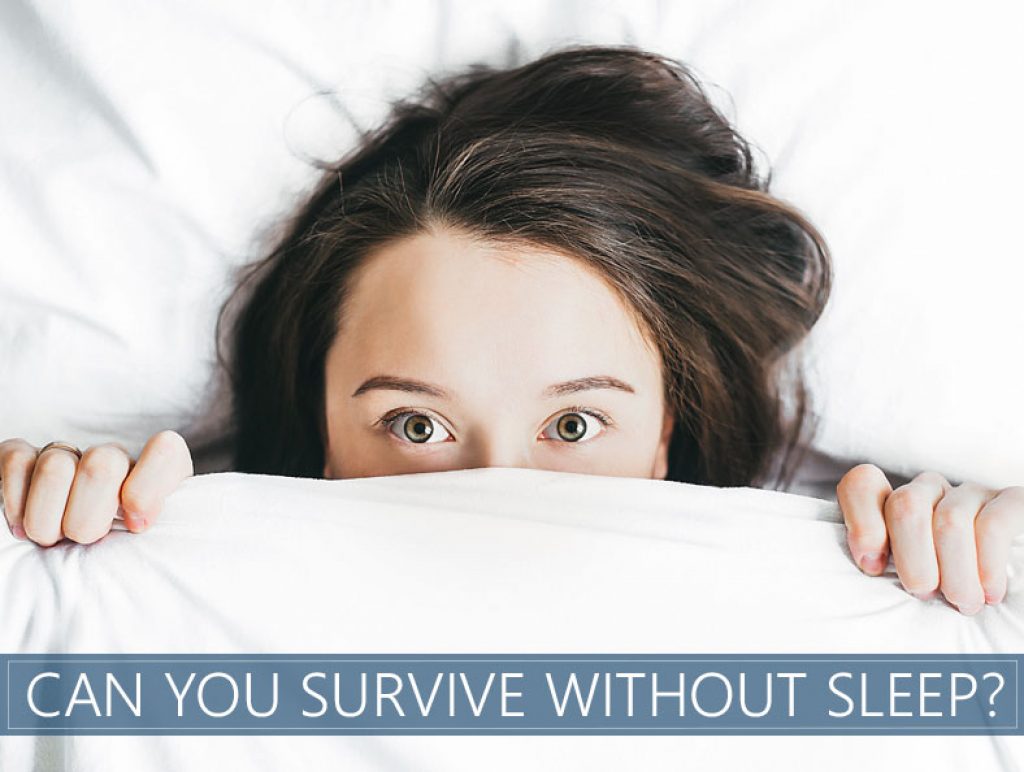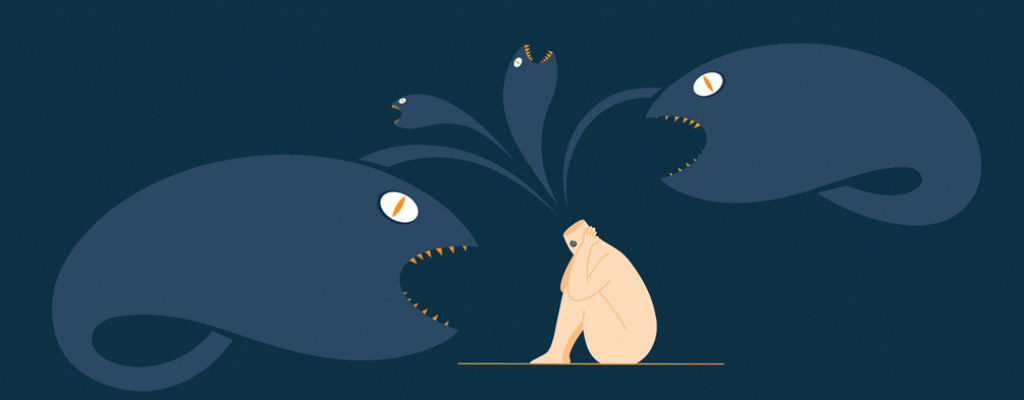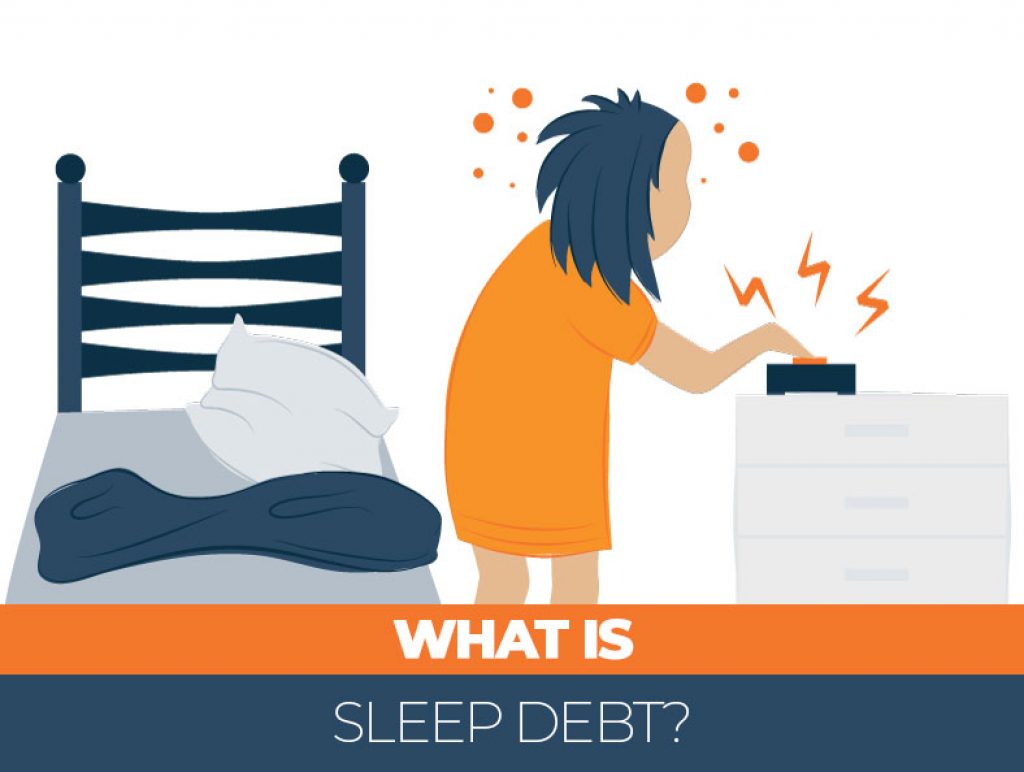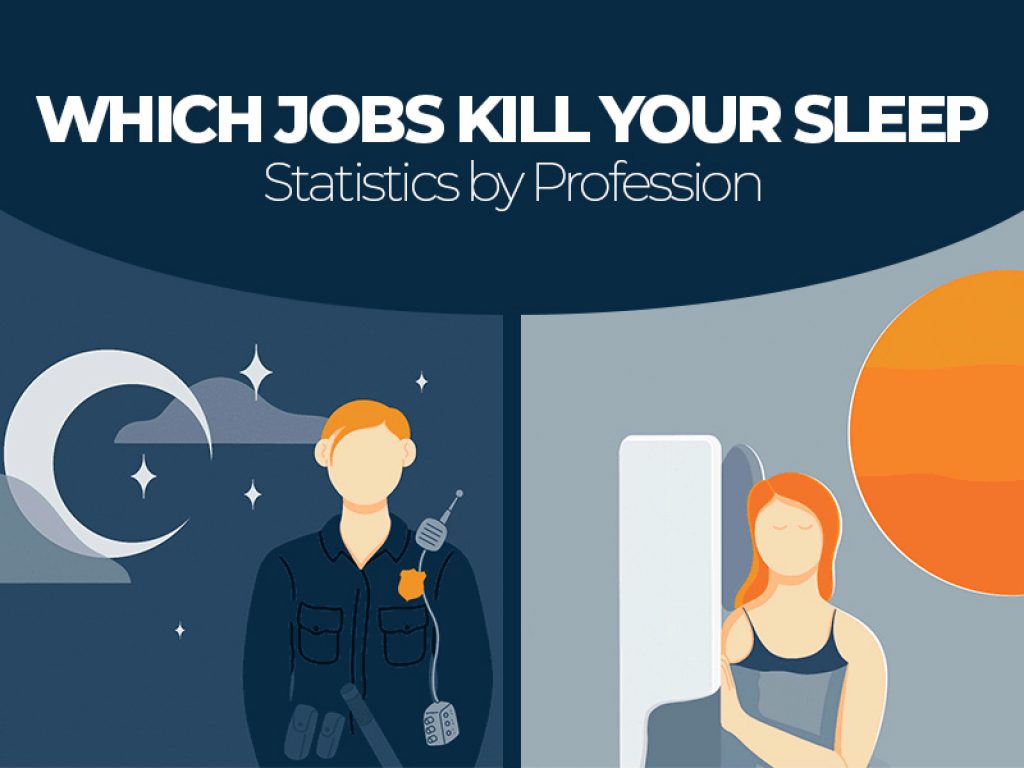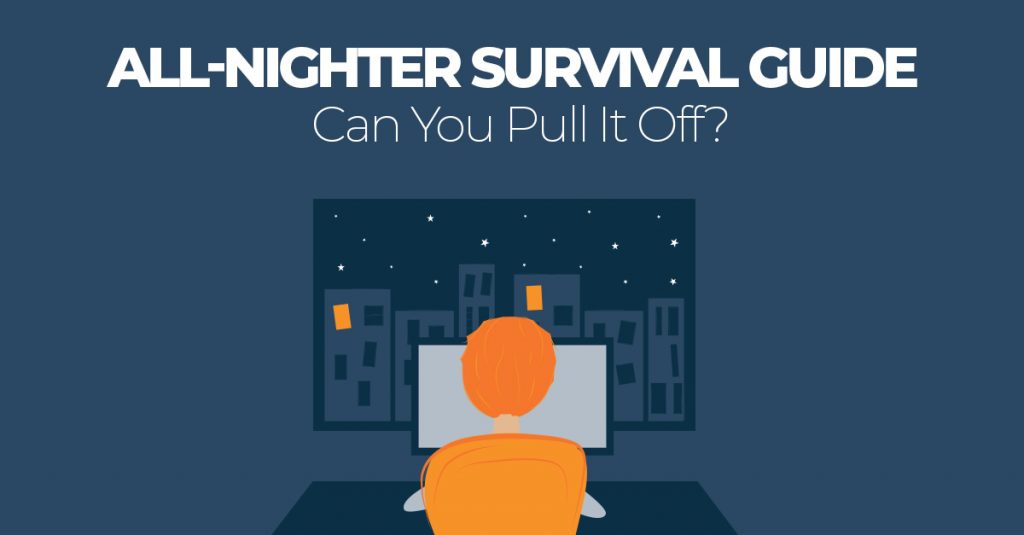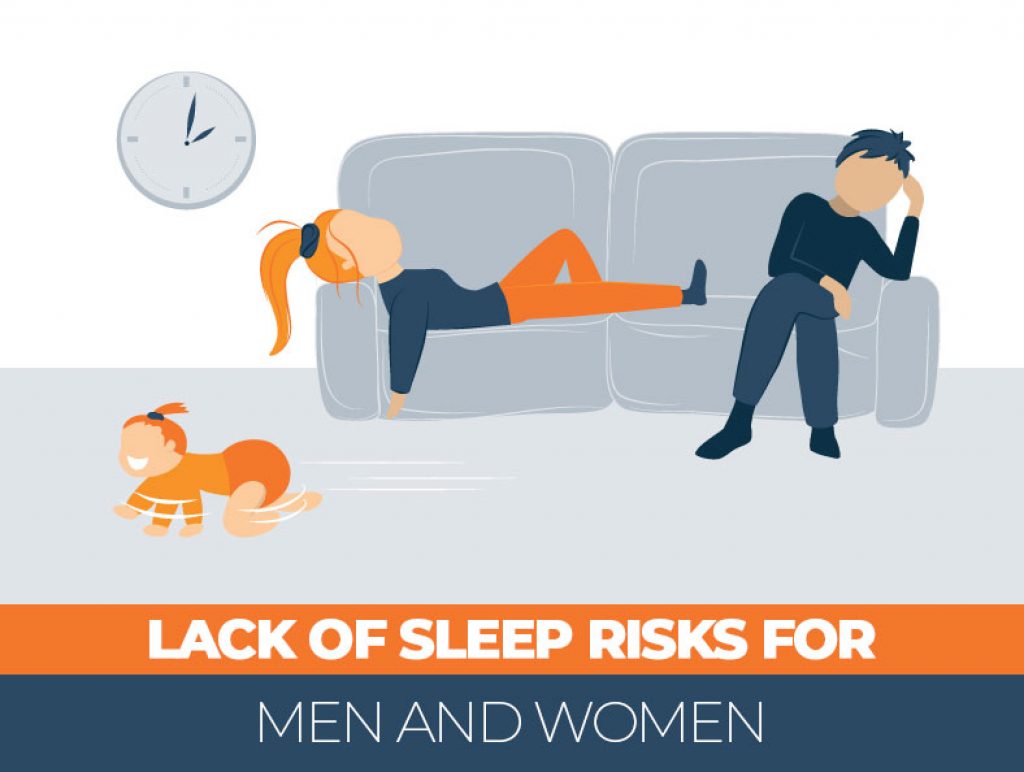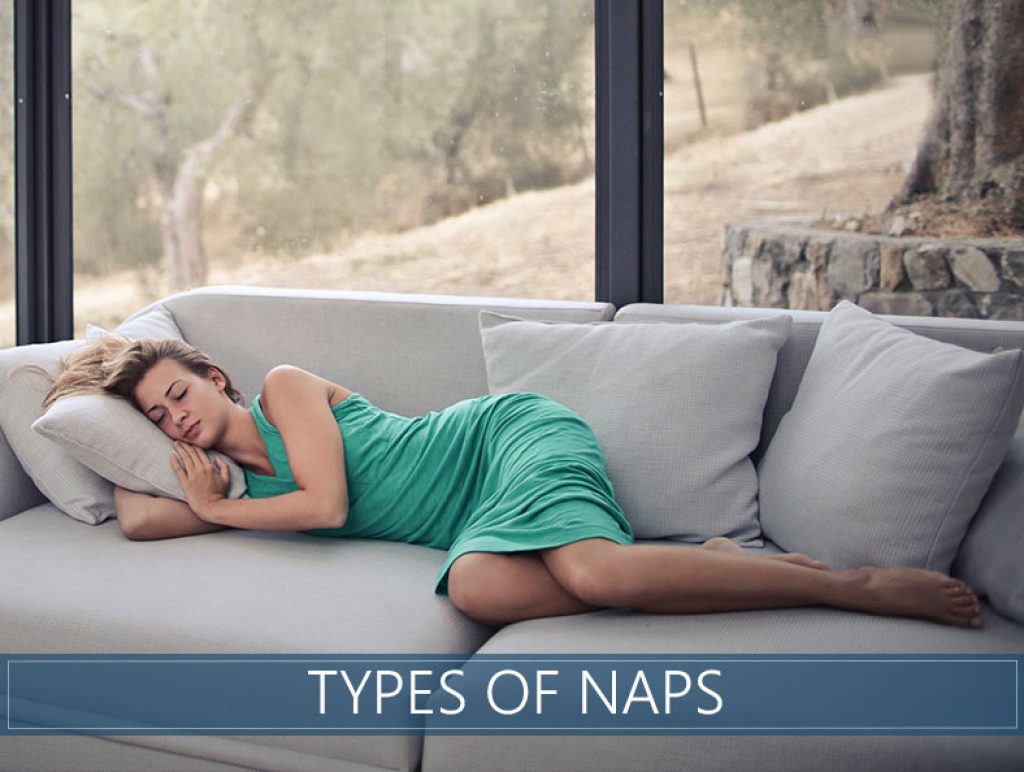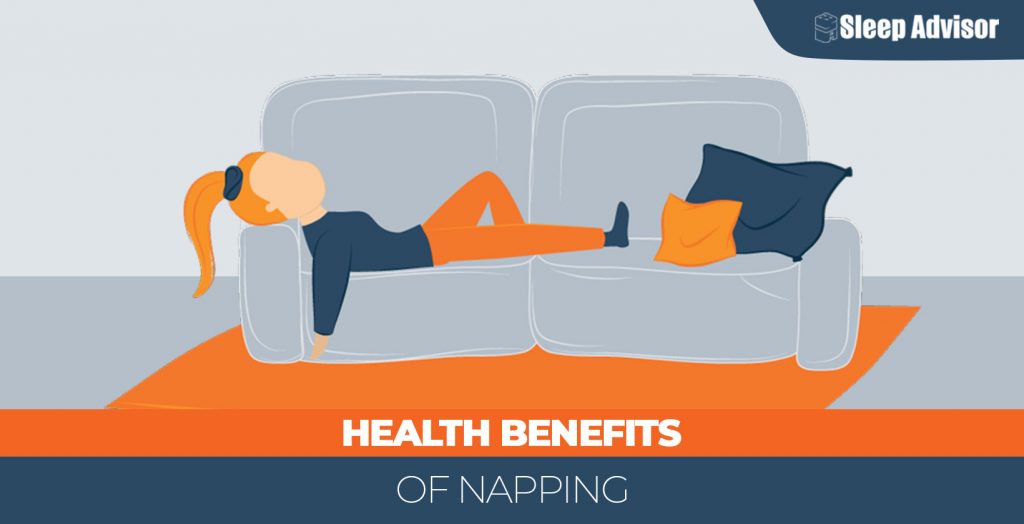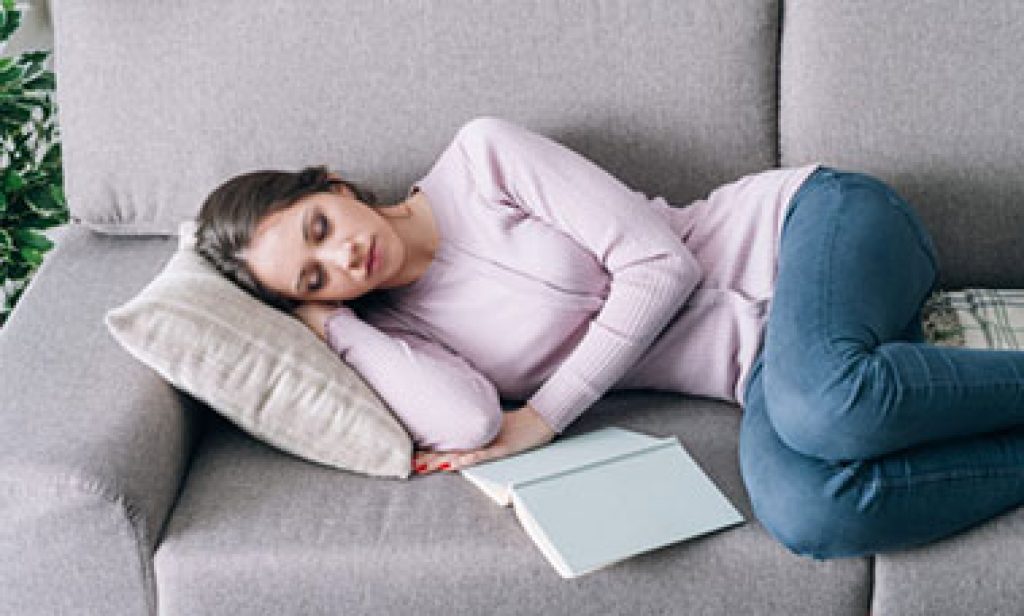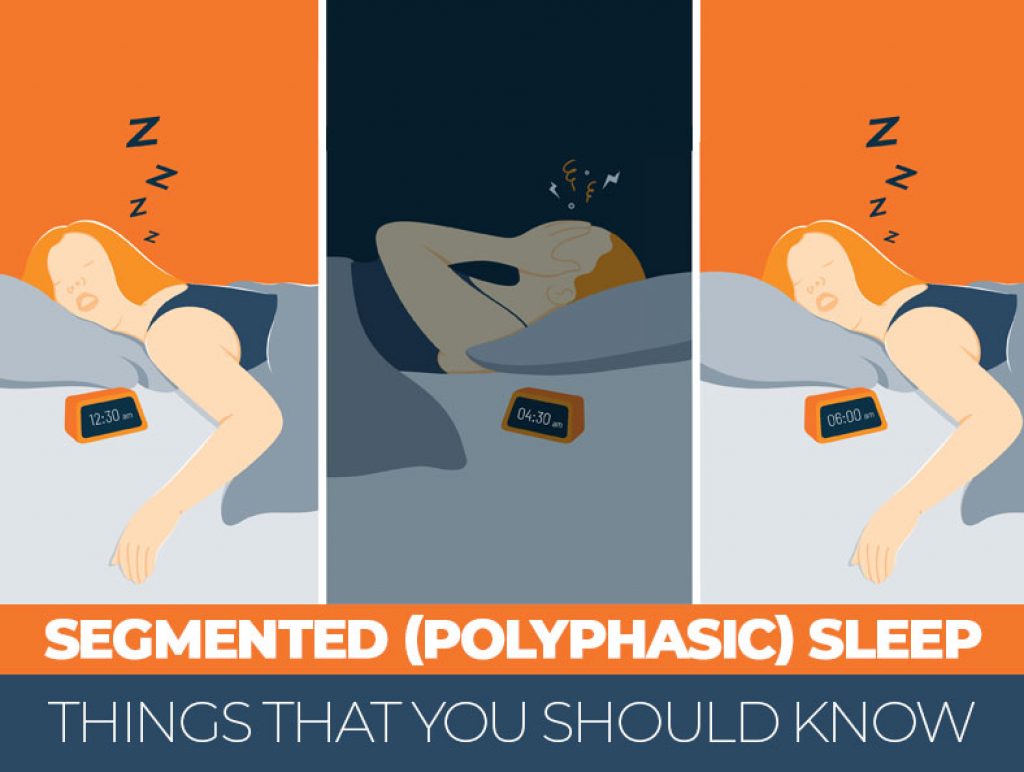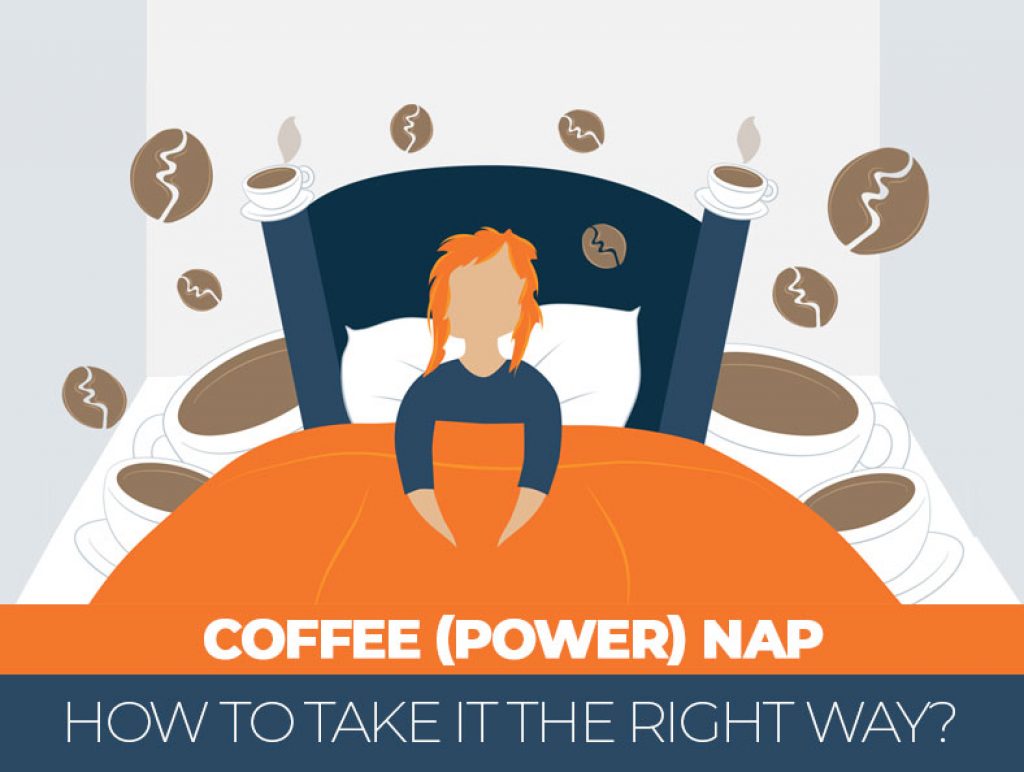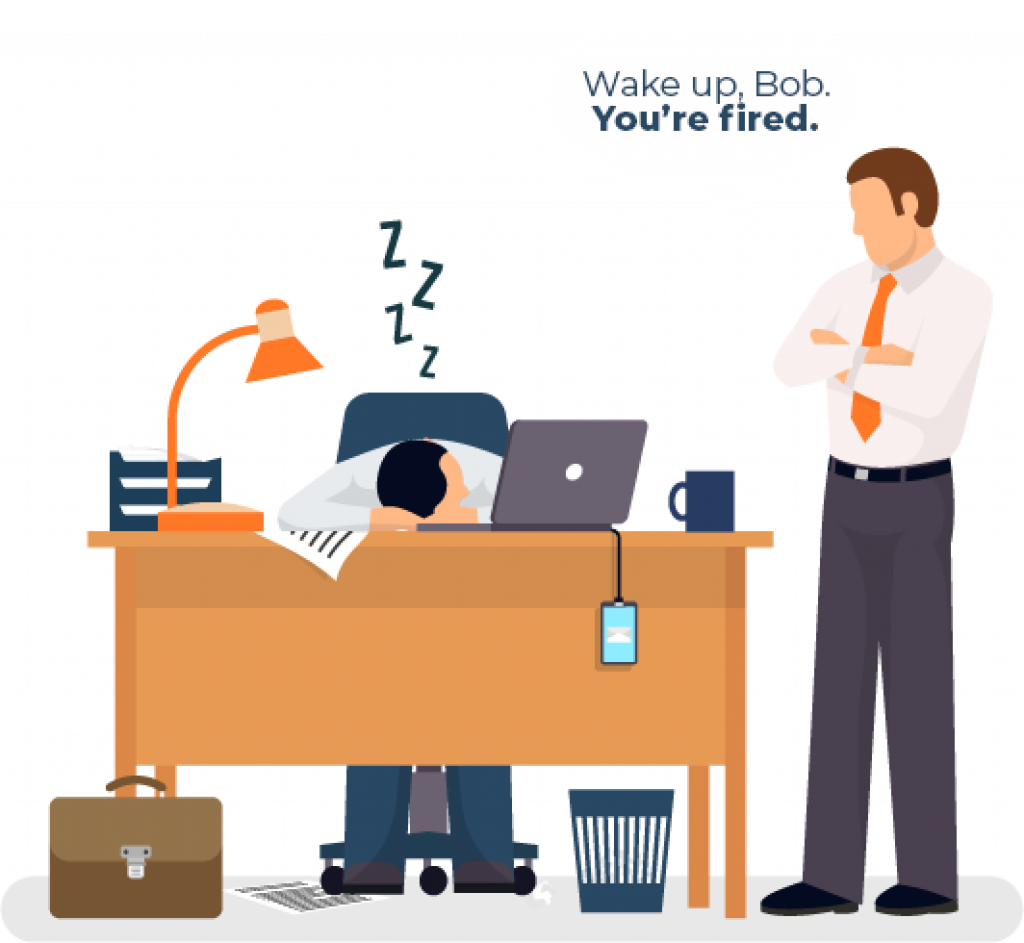Sleep deprivation occurs when an individual does not get the recommended amount of sleep for their age group. Experts suggest adults get between 7 and 9 hours of rest each night. This data comes from the American Academy of Sleep Medicine (AASM).
The AASM gathered this data by establishing a 15-person panel of sleep medicine specialists and researchers that came to a consensus on the amount of sleep each night that should provide optimal physical, mental, and emotional health. This means that if you’re an adult sleeping less than 7 hours a night, you’ll likely experience sleep deprivation.
Symptoms of Sleep Deprivation
Although one of the most evident signs of sleep deprivation is feeling drowsy during the day, the symptoms of sleep deprivation depend on the stage of sleep deprivation. There are four stages of sleep deprivation[1]. As you go longer and longer without sleep, the symptoms you experience become progressively worse.
Stage 1: During the first 24 hours without sleep, you’ll start to feel as though you’re under the influence of alcohol[1]. This means that potential symptoms[2] can include poor judgment, impaired coordination and reflexes, emotional instability, sleepiness, and memory loss. Furthermore, you should avoid driving as this can be unsafe. Puffy eyes and dark circles are also indicative of not getting enough sleep.
Stage 2: As you move into stage 2, your symptoms will escalate. Along with difficulty thinking or focusing, this is when you’ll develop microsleeps1. A microsleep[3] is a brief sleep period that can last up to 30 seconds with symptoms that include blinking slowly or frequently, difficulty comprehending information, suddenly waking with body movements, and yawning a lot. When you experience a microsleep, you often don’t even realize it’s happening, which can be especially dangerous if you’re operating a machine or vehicle. Sleep deprivation is the leading cause of microsleeps[3].
Stage 3: As you continue without sleep, you can begin experiencing hallucinations[1]. With hallucinations, you sense things that feel real but are not. A 2018 study[4] found that complex hallucinations from sleep deprivation began to develop between 48 and 90 hours without sleep, and after 72 hours people started experiencing delusions. A delusion[5] differs from a hallucination in that the person firmly believes something, even with evidence that it’s not true.
Stage 4: During this time, a person’s hallucinations will intensify and become more regular. They will struggle to differentiate reality from what they’re seeing or feeling[1]. Having trouble deciphering reality is known as sleep deprivation psychosis. Furthermore, going too long without sleep is highly dangerous and could become fatal[6]. In certain cases, extreme sleep deprivation can be hereditary, as is the case with Fatal Famlial Insomnia (FFI). While most people can curb sleep deprivation on their own, those with FFI usually have to see their symptoms get progressively worse and treatment focuses on making them feel as comfortable as possible.
Have You Gone Without Sleep?
Sleep Deprivation Psychosis
As mentioned above, sleep deprivation psychosis is when a person is so sleep deprived, that they have difficulty knowing what’s real and what isn’t. Researchers found that this state of psychosis usually began after 2-3 days without sleep[4]. Someone with psychosis[7] can experience both hallucinations and delusions, which means they’ll sense things that aren’t there or believe things proven to be false. Examples of common hallucations[8] include a crawling sensation on the skin, hearing sounds or voices, seeing things that aren’t there like lights or objects, and smelling odors. In the case of delusions, a person may become paranoid and believe they’re being spied on or convince themselves that they have a medical condition[5].
Types of Sleep Deprivation
Sleep deprivation is broken down into two primary categories: acute and chronic. While the symptoms mentioned above focus more on acute – or short-term – sleep deprivation, chronic sleep deprivation can have a greater impact on your overall health.
Acute sleep deprivation: Acute sleep deprivation[9] is when a person doesn’t get enough rest for a short period, usually several days. You might experience acute sleep deprivation if you stay up late to finish a work assignment or are recovering from jet lag from a recent trip overseas.
Although acute sleep loss is short-term, even symptoms within the first 24 hours can impact your daily life. For example, research[10] has found that acute sleep deprivation can lengthen the time it takes to complete a task and reduces accuracy. So, while you may be tempted to pull an all-nighter to finish an assignment or study for a test, your performance the following day could suffer as a result, and if you continue to lose out on sleep, more of the above-mentioned symptoms can begin to surface.
Chronic sleep deprivation: Chronic sleep deprivation[11] is when someone routinely doesn’t get enough sleep. To be considered chronic, sleep loss is usually daily and goes on for three months or longer.
According to the American Academy of Sleep Medicine, the causes of long-term sleep loss include unintentional behavioral decisions, personal commitments, work schedules (such as working overnight shifts), and medical problems[11]. The long-term complications of chronic sleep loss should not be taken lightly either. Health experts warn that sleep loss can increase one’s risks for issues such as high blood pressure, high cholesterol, type 2 diabetes, a weakened immune system, more sensitivity to pain, Alzheimer’s disease, depression, and anxiety[1].
Sleep Duration Recommendations
The following table lists how much sleep people need according to their age. Both the data for children[12] and adults[13] are from the American Academy of Sleep Medicine.
Age is one of the main factors in how much sleep people need. Kids’ sleep needs are more than what adults require because of the increased rate at which children grow physically and mentally. These sleep durations are based on expert consensus from the American Academy of Sleep Medicine (AASM) for optimal mental and physical health.
Based on this data, someone should begin experiencing signs of sleep deprivation if they sleep less than the recommended amount, with symptoms worsening the longer they go without enough sleep.
Causes of Sleep Deprivation
Sleep deprivation is very common. In fact, it’s reported that as many as 1 in 3 American adults[14] don’t get enough sleep at night.
Adults are not the only ones missing sleep, though. According to the American Academy of Pediatrics, only 48 percent[15] of school-age children in the United States get enough sleep. They go on to say that the risk factors for sleep loss in kids include having parents or caregivers with less education, lower poverty levels, increased use of digital media, experiencing more adverse situations, and mental health conditions[15].
For adults, though, different circumstances and issues can result in sleep deprivation. These include poor sleep hygiene, work demands, sleep disorders, mental health issues, and high-stress levels[1].
Poor Sleep Hygiene
Sleep hygiene refers to habits and lifestyle factors aimed at improving sleep. Conversely, poor sleep hygiene refers to practices that go against this. Examples of poor sleep hygiene include sleeping on a bad mattress, keeping an irregular sleep, eating late at night, consuming caffeine and alcohol, and scrolling through your phone before bed. Each of these can impact sleep for different reasons, too.
A bad mattress can leave you feeling uncomfortable, thus making it a challenge to sleep peacefully. A bad mattress could be too old or one that’s not made well.
Irregular sleep patterns can throw off your circadian rhythm, or internal clock, which tells your body when it’s time to sleep and be awake. Eating late at night is bad because some foods can trigger stomach issues, such as indigestion or acid reflux, that make it harder to sleep soundly
Consuming caffeine and alcohol can also negatively affect how well you rest. Caffeine delays sleep onset, and although alcohol may make you drowsy, it’s also linked to more fragmented rest[16]. The reason for this is that alcohol limits the amount of deep sleep and REM sleep you get. As a result, you’re more likely to remain in a lighter sleep, increasing your risk of waking up later in the night[16].
Devices like smartphones, computers, and televisions are harmful to sleep because they emit a blue light[17] that curbs the production of the melatonin hormone. Melatonin production increases at night to promote sleepiness, but by suppressing this, you’re more likely to feel alert.
Work Demands
Certain work demands can also interfere with getting enough shuteye. For example, a large workload or shift work may result in a lack of sleep. Busy employees may sacrifice their sleep to meet an upcoming deadline, or overnight workers may struggle to get adequate rest during the day.
Sleep Disorders
Sleep disorders are conditions that negatively impact or interfere with an individual’s quality of rest. These disorders can make it hard to fall and stay asleep, often resulting in insufficient rest. Examples of common sleep disorders include insomnia, sleep apnea, restless legs syndrome, and REM sleep behavior disorder.
Other medical issues can interfere with getting enough shuteye by making it hard to fall or stay asleep. Health-related issues associated with sleep problems include gastroesophageal reflux disease (GERD)[18], viral illnesses, pain, Alzheimer’s disease, Parkinson’s disease, and certain medications like corticosteroids and stimulants[1].
Mental Health Issues
People who struggle with mental health issues are also at risk for sleep problems. Mental health problems linked to sleep deprivation include anxiety, bipolar disorder, depression, mania, panic disorder, post-traumatic stress disorder (PTSD), and somniphobia (fear of sleep)[1]. However, this is a cyclable problem because the less rest you get, the worse some of these problems become, as is the case with depression[1].
High-Stress Levels
Experiencing high levels of stress is also linked to sleep deprivation[1]. As you might imagine, when your mind is racing and you can’t relax, this creates a “perfect storm” for insomnia, and because of that, you’re more likely to not get enough shuteye.
Therefore, it’s important to find ways to manage your stress, particularly if you still carry it at night. Meditation, yoga, a warm bath, and sipping on warm herbal tea are just some examples of nighttime activities you can do to help yourself wind down at the end of the day.
Risks and Consequences
The risks and consequences of sleep deprivation include short-term and long-term physical and cognitive health complications.
Short-term side effects of sleep deprivation include difficulty focusing, an increased risk for accidents, less physical energy, and more negative moods.
Long-term sleep deprivation effects include high blood pressure, memory problems, obesity, diabetes, heart attack, heart failure, or stroke.
Although humans can die from a lack of sleep, in most cases, sleep deprivation doesn’t directly cause death but rather fosters long-term health issues or increased accident risks that can result in death. For example, sleep-deprived people are more likely to develop cardiovascular problems that could be fatal such as a heart attack, heart failure, or stroke. Furthermore, sleep deprivation can put someone at a higher risk of getting into an automobile accident, which could be fatal.
The longest a person has gone without sleep was 264 hours[19], equating to 11 days. This was done as part of an experiment in 1965 by a 17-year-old student named. In other monitored studies, participants were able to stay awake for 10 days. The participants were able to fully recover after about one or two nights back to sleep.
One exception in which sleep deprivation directly causes death is Fatal Familial Insomnia (FFI), a rare genetic brain disorder that causes chronic insomnia. FFI may start in a mild form but, over time, becomes worse and ultimately leads to death. In the case of FFI, sleep deprivation is typically fatal around 18 months[20].
How to Treat Sleep Deprivation
The ways to treat sleep deprivation will depend on what’s causing the issue and how severe it is. We list some potential treatment options below.
Lifestyle changes. Lifestyle changes can help prevent sleep deprivation or stop it from worsening. Examples of helpful habits for better rest include keeping a consistent schedule that allows for sufficient sleep, daytime exercise, avoiding caffeine and alcohol close to bedtime, cutting off electronic devices before bed, and creating a relaxing bedtime routine.
Sleep disorder treatment. Treatments for sleep disorders may also help mitigate sleep deprivation. However, the treatment will depend on the type of disorder. For example, those with sleep apnea may need a CPAP machine to improve their rest. Once a sleep disorder is diagnosed, your doctor can then set up an appropriate treatment plan.
Medications. In more severe cases of insomnia, doctors may prescribe sleeping pills to help a patient catch up on rest. However, these pills are meant to be a temporary solution and are not typically intended for long-term use.
Catch up on sleep. This is often a go-to method for many people experiencing a sleep debt. Taking a nap or sleeping in on the weekends can help you feel more alert, but it’s important to note that this won’t reverse the metabolic dysregulation[21] that can result from sleep loss. So, while catching up on a sleep can be a temporary solution, you shouldn’t rely on it regularly and instead focus on trying to get enough sleep each night.
What is the difference between sleep deprivation and insomnia?
Insomnia is a sleep disorder in which a person has trouble falling and staying asleep, even if they allow plenty of time for sufficient rest. On the other hand, sleep deprivation is usually the result of someone not scheduling enough time to get enough rest.
Sleep deprivation is also a side effect of insomnia because insomnia prevents someone from sleeping enough. Therefore, sleep deprivation and insomnia are usually linked together because one is a byproduct of the other. Furthermore, people with insomnia will often experience symptoms associated with sleep deprivation, such as trouble concentrating, daytime fatigue, and irritability.
Conclusion
Whether the result of health issues, work schedules, or busy life commitments, sleep deprivation is a common problem. While it may be easy to overlook sleep loss, the consequences can have far-reaching effects on our safety and well-being. Even just one night of sleep loss could increase your risk of an accident, hinder your work or academic performance, and negatively affect your mood.
Sleep deprivation can be acute or chronic, and the longer you go without sufficient sleep, the more you put yourself at risk for long-term physical and mental health complications. With this in mind, prioritizing quality sleep each night is a vital step toward leading a better, healthier life.
Sleep Deprivation
More Content
Naps
Featured Articles
Sources and References
- “Sleep Deprivation”. Cleveland Clinic. Last modified August 11, 2024.
- “What are the effects of alcohol?”. Australian Government Department of Health and Aged Care. Last modified August 2, 2024.
- “What You Should Know About Microsleep”. Cleveland Clinic. 2021.
- Waters, Flavie., Chiu, Vivian., Atkinson, Amanda., Dirk Blom, Jan. “Severe Sleep Deprivation Causes Hallucinations and a Gradual Progression Toward Psychosis With Increasing Time Awake”. Frontiers in Psychiatry. 2018.
- “Delusions vs Hallucinations: Understanding False Realities”. Baton Rouge Behavioral Hospital. 2024.
- Jiang, Kevin. “Sleep, death, and… the gut?”. The Harvard Gazette. 2020.
- “Overview – Psychosis”. National Health Service. Last modified December 10, 2019.
- “Hallucinations”. Medline Plus. Last modified April 30, 2024.
- Cirelli MD PhD, Chiara. “Insufficient sleep: Definition, epidemiology, and adverse outcomes”. UpToDate. Last modified October 10, 2024.
- Peng, Ziyi., Dai, Cimin., Ba, Yi., Zhang, Liwei., Shao, Yongcong., Tian, Jianquan. “Effect of Sleep Deprivation on the Working Memory-Related N2-P3 Components of the Event-Related Potential Waveform”. Frontiers in Neuoscience. 2020.
- “Sleep Deprivation”. American Academy of Sleep Medicine. 2008.
- Paruthi MD, Shalini., Brooks MD, Lee J., D’Ambrosio MD, Carolyn., et. al. “Recommended Amount of Sleep for Pediatric Populations: A Consensus Statement of the American Academy of Sleep Medicine”. Journal of Clinical Sleep Medicine. 2016.
- Badr MD, M. Safwan., Belenky MD, Gregory., et. al. “Recommended Amount of Sleep for a Healthy Adult: A Joint Consensus Statement of the American Academy of Sleep Medicine and Sleep Research Society”. 2015.
- “What Are Sleep Deprivation and Deficiency?”. National Heart, Lung, and Blood Institute. Last modified March 24, 2022.
- “Only half of US children get enough sleep during the week”. Science Daily. 2019.
- “Why You Should Limit Alcohol Before Bed for Better Sleep”. Cleveland Clinic. 2020.
- “Blue light has a dark side”. Harvard Health. 2020.
- Fujiwara, Yasuhiro., Arakawa, Tetsuo., Fass, Ronnie. “Gastroesophageal reflux disease and sleep disturbances”. National Library of Medicine. 2012.
- “How Long Can Humans Stay Awake?”. Scientific American. 2002.
- Khan, Zalan., Bollu, Pradeep C. “Fatal Familial Insomnia”. Stat Pearls Publishing. Last modified May 8, 2024.
- Depner, Christopher M., Melanson, Edward L., Eckel, Robert H., et. al. “Weekend Recovery Sleep Fails to Prevent Metabolic Dysregulation during a Repeating Pattern of Insufficient Sleep and Weekend Recovery Sleep”. Current Biology. 2019.

Jill Zwarensteyn
Editor
About Author
Jill Zwarensteyn is the Editor for Sleep Advisor and a Certified Sleep Science Coach. She is enthusiastic about providing helpful and engaging information on all things sleep and wellness.
Combination Sleeper
